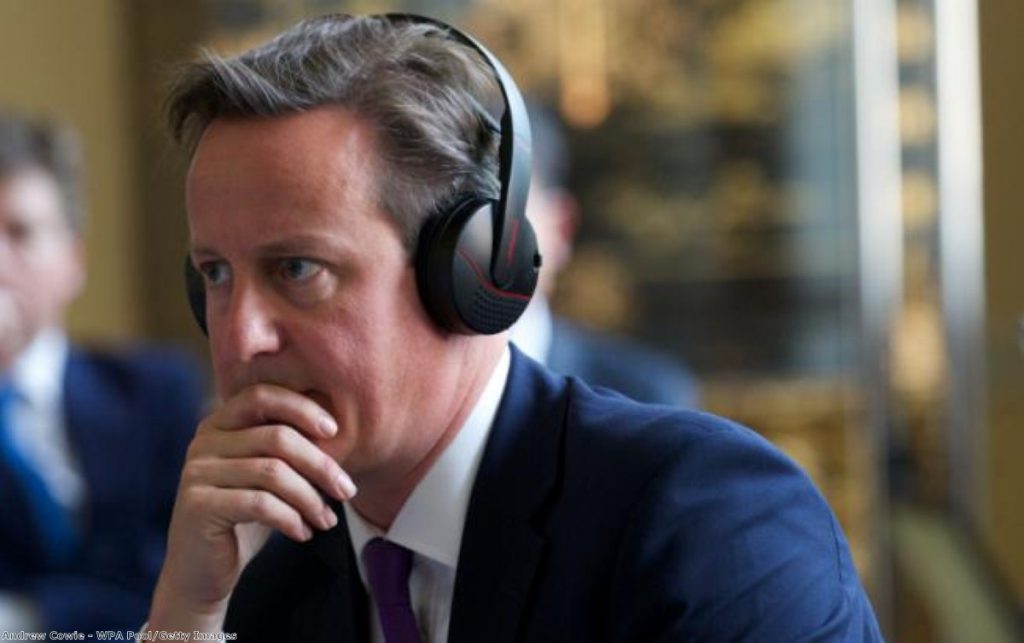Comment: This year’s election soundtracks won’t win many votes
By Professor John Street
As with shopping malls, so it is with election campaigns. Somewhere in the background, there is a soundtrack, sometimes subtle, sometimes not so subtle – but always designed to programme the listener's responses or heighten the emotion.
Nigel Farage strode on stage early in the campaign to the sound of the Monkees' I'm A Believer (for some reason he eschewed the opportunity to reprise Mike Read's Ukip calypso). An example of the not-so-subtle approach, there.
Most of the other parties have been a bit more restrained. Perhaps they're fearful of the time, back in 2010, when the pop group Keane took umbrage at their song Everybody's Changing being used by the Conservative party. Ukip were unlikely to get grief from the Monkees, and indeed Keane had no grounds for complaint: the song had been legally licensed (unlike the British National Party's use of a song by the Manic Street Preachers).


But the Tories have not always been very wise in their choice of music. They were ridiculed in 2001 for commissioning Mike Batt to write their theme music. Batt's previous credits included music for the Wombles; they might have been better advised to stick with Land Of Hope And Glory.
Traditionally, it has been the party election broadcast that has been the most obvious site for the carefully selected tune. In 1997, New Labour went for D:Ream's Things Can Only Get Better. In 2001, they boasted their achievements to the more dulcet sounds of the Lighthouse Family's Lifted.
In the States, there's a long tradition of presidential campaign songs, archived at the Smithsonian. In recent times, politicians have wrestled over the right to claim Bruce Springsteen as songwriter–in-chief (Ronald Reagan, Bob Dole and Pat Buchanan have used Born In The USA for their campaigns. And, of course, will.i.am famously turned Obama's campaign speech into a song ('Yes, We Can' – 25 million views and climbing).
The 2015 general election has yet to produce anything of this kind, but we have had a Liberal Democrat mash-up of 'Uptown Funk', and the Green party's Change The Tune party election broadcast.
The latter was devised as an attack on the three main parties. Their problem, according to the broadcast, was that they all sang the same tune 'in harmony'. The Greens were different. How did they convey this? With a parody of a boy band – a lead singer, backed by, we were led to assume, David Cameron, Nick Clegg and Ed Miliband. As a piece of propaganda, it was an excruciating watch. But its subtext was interesting in its crude musical prejudices. It played on reactionary stereotypes about boy bands. It also mocked harmony. It prompted the question: what would Green party music sound like? No harmonies, no boy bands. Indie? Heavy metal? Avant-garde jazz?
There will be more important issues in the UK's 2015 election campaign than the music that accompanies it, but it won't be irrelevant. There is a serious side to all this.
Parties spend a fair amount of time thinking about what they should sound like (think of those Desert Island Disc choices). They've learnt that your soundtrack matters from advertisers and filmmakers. A lot of money goes into the sound architecture of retail environments because what we hear changes the way we behave. Maybe with the right soundtrack you can garner a few extra votes and burnish the brand.
But listening to their selections, you doubt it. It's also a relief that they're not in the running for a show on 6Music. Or alternatively, Iggy Pop for PM.
John Street is professor of politics at the University of East Anglia. He is the author of several books, including Music and Politics, Politics and Technology, Rebel Rock: the politics of popular music, Politics and Popular Culture, and Mass Media, Politics and Democracy
The opinions in politics.co.uk's Comment and Analysis section are those of the author and are no reflection of the views of the website or its owners.

